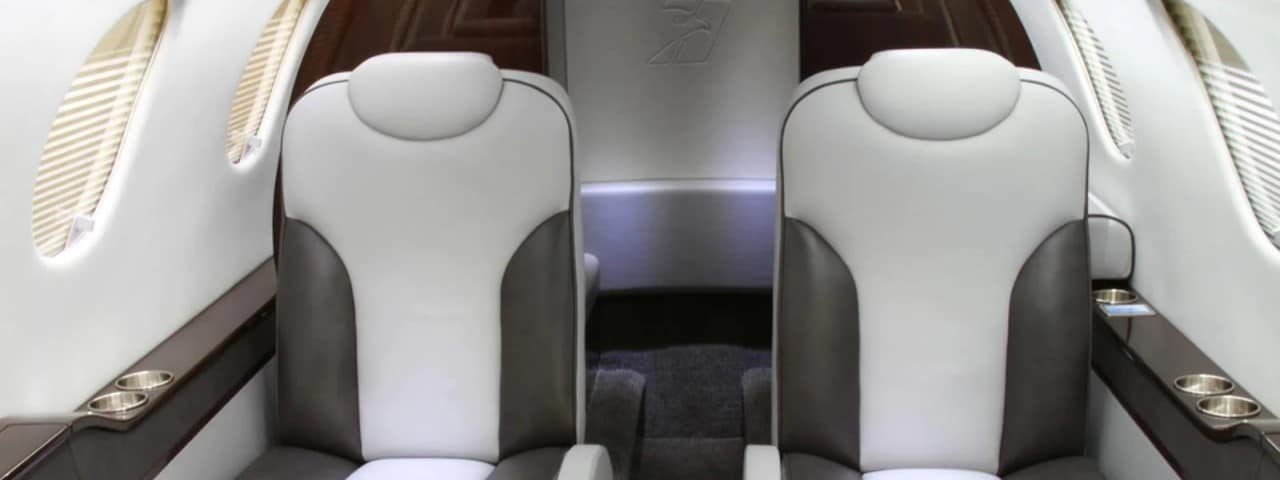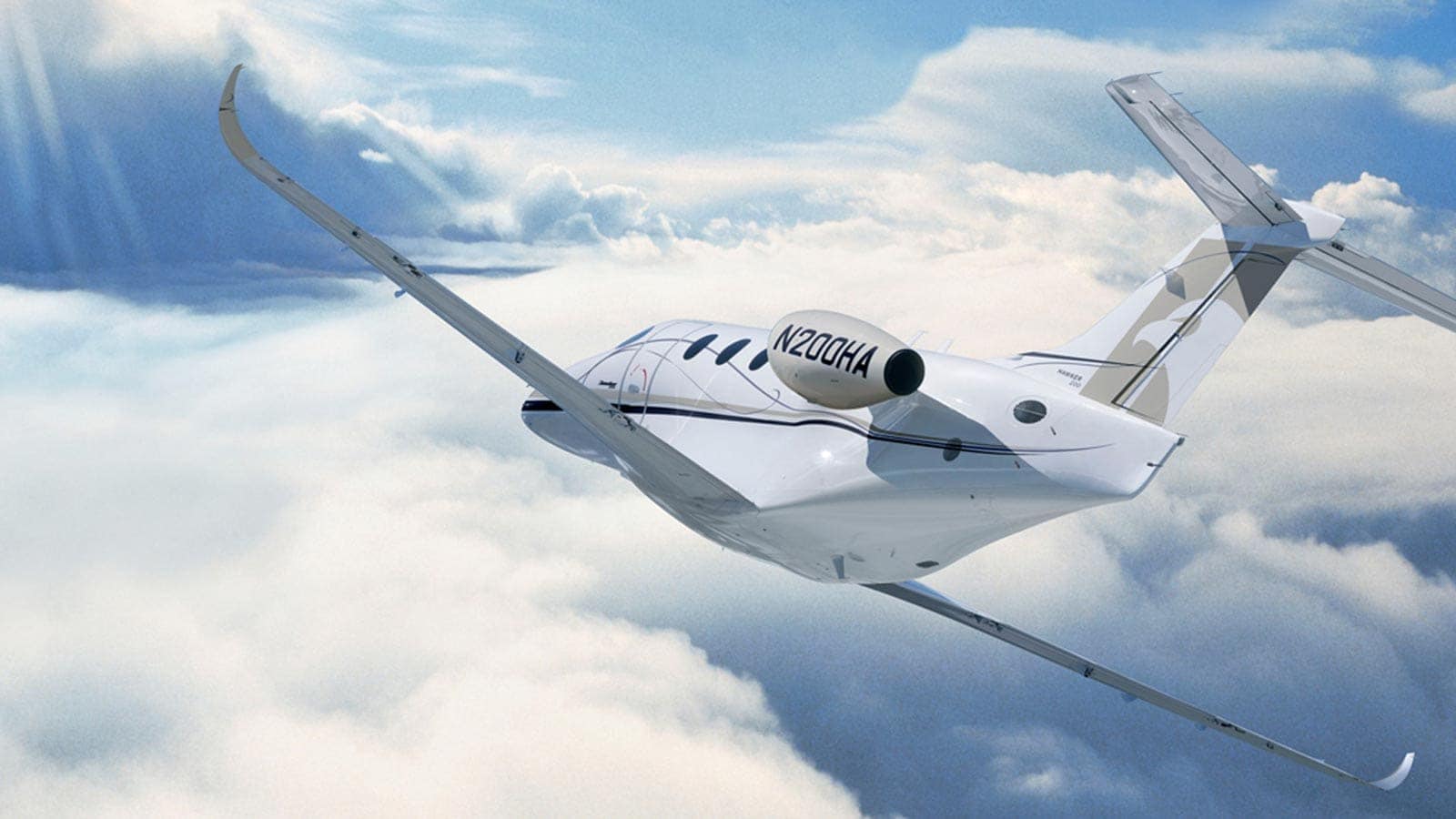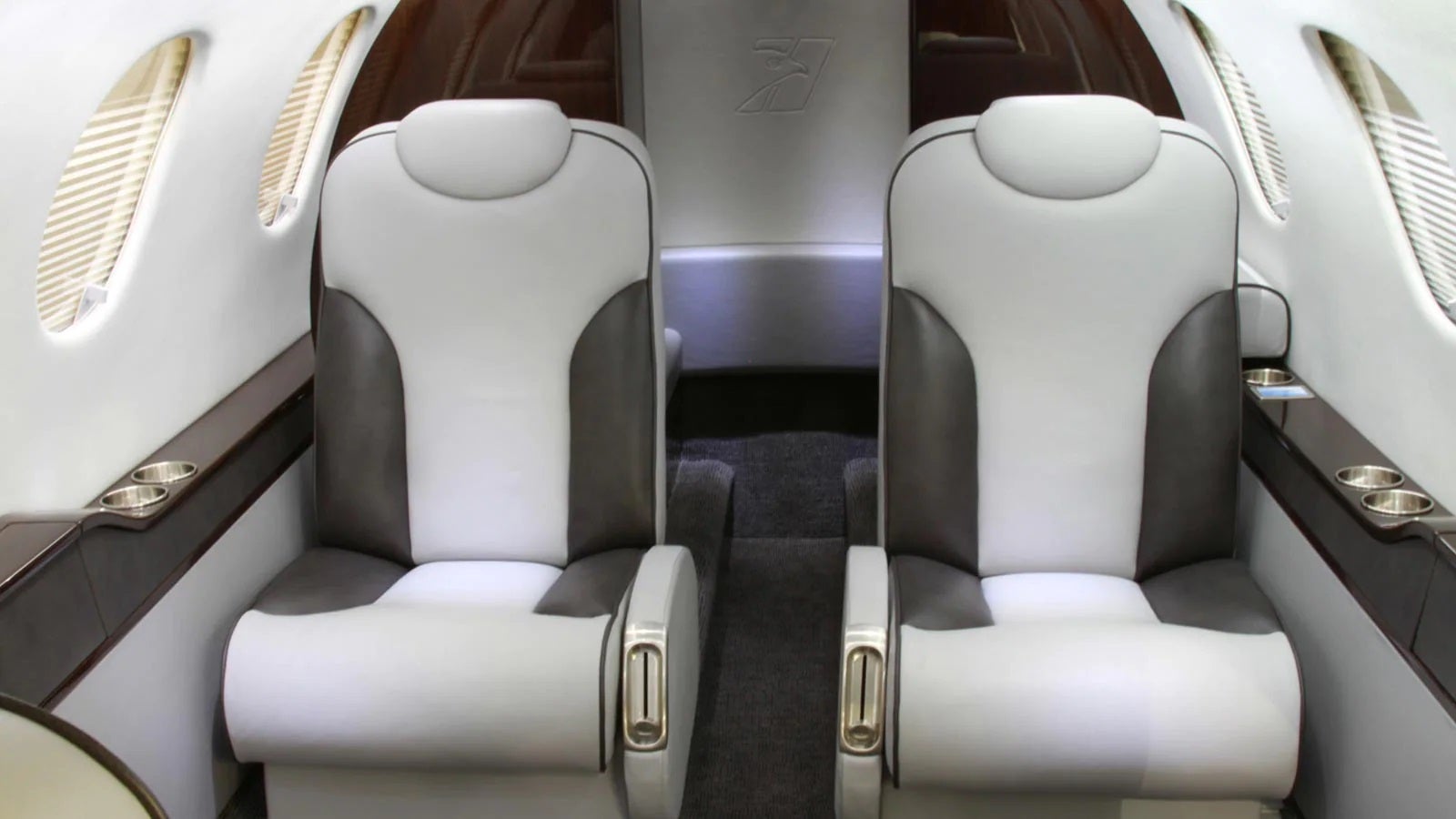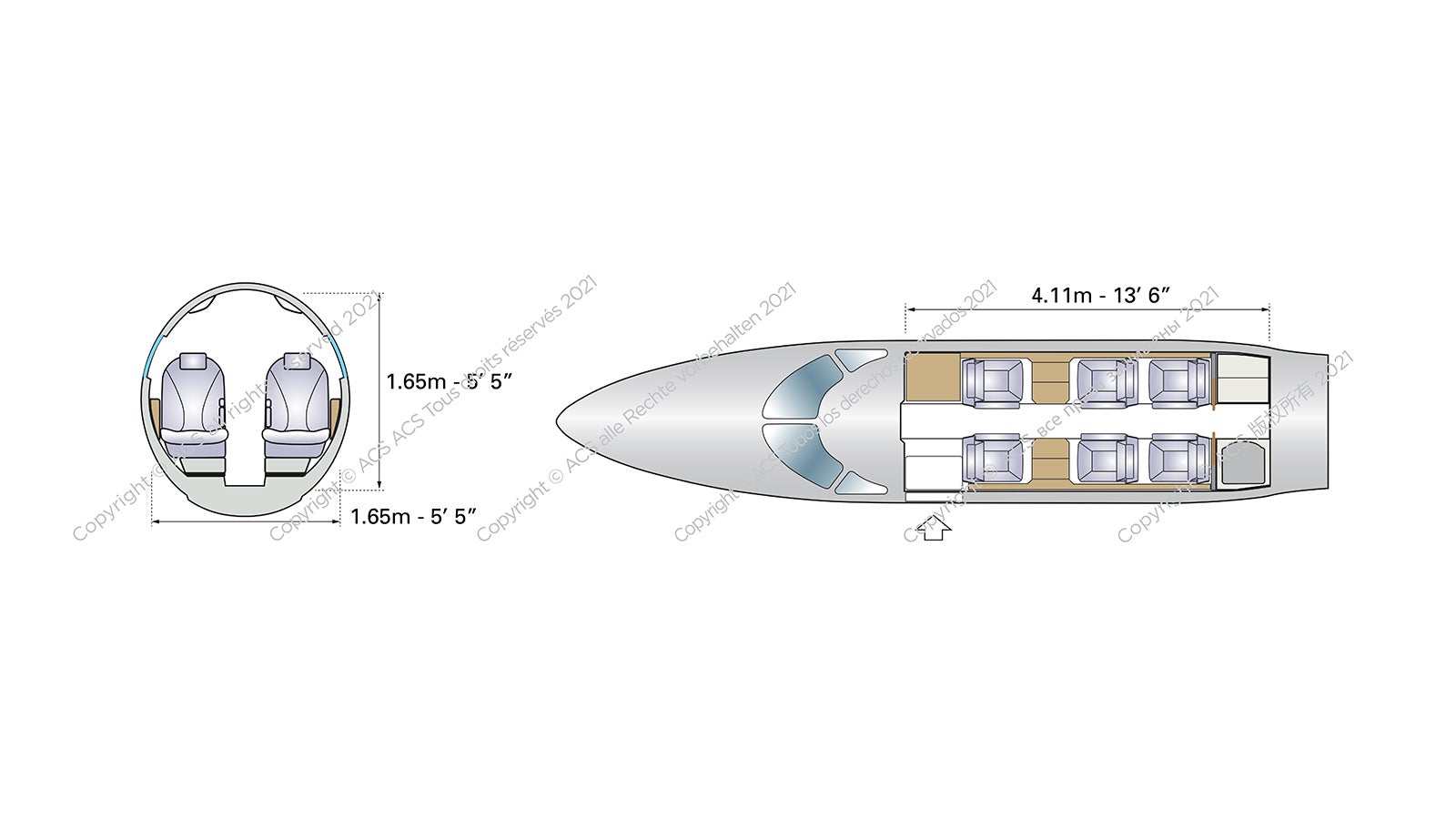HAWKER 200
- Passengers 6
Originally called the Premier II, the Hawker 200 has one of the largest and most spacious cabins in the light jet class.
About this aircraft
- The original Premier II was introduced in 2008 as an upgrade of the Premier IA. It was rebranded as the Hawker 200 in 2010 before the first delivery.
- The aircraft can fly non-stop from London to Madrid or New York to Atlanta.
- The Hawker 200 is typically laid out to accommodate up to six passengers. A further passenger can be seated in the enclosed lavatory if required.
- The large baggage compartment has space for around six suitcases and can be accessed in-flight.
The Hawker 200 was the world’s most technologically advanced single-pilot business jet at the time it was released, thanks to its state-of-the-art, high strength, all-composite fuselage.
Interior design

Measuring in at 4.11m long, 1.68m wide and 1.65m high, the Hawker 200’s cabin was 30% larger than its closest rivals when it launched. The interior is typically laid out with four seats in a club formation and two forward-facing seats at the rear.
Amenities include a large galley, belted lavatory, inbuilt cabin stowage area, refreshment centre, executive tables and cabin climate control systems.
Below is an example of a typical configuration found onboard the Hawker 200.

Interesting facts to learn before you fly
- The Hawker 200 can operate on short runways and unprepared airstrips, even in adverse weather conditions.
- It features a contoured cabin headliner that increases passenger headroom.
Technological features
The Hawker 200 is powered by two Williams International FJ44-3AP turbofan engines, each rated at 13.34kN of thrust.
The cockpit is equipped with ProLine 21 avionics. The flight deck comprises three LCD screens displaying navigation, flight instrumentation, fuel and engine data.
History
The Hawker 200 was designed as an upgrade of the Premier IA. Hawker Beechcraft launched the project in 2008, calling it the Hawker Beechcraft Premier II during the early stages of production.
In 2010, the aircraft was renamed the Hawker 200 and showcased at the National Business Aviation Association’s trade show in Atlanta. The first pre-production Hawker 200 completed its maiden flight the following year, before receiving certification in 2012.
Manufacturer
British aircraft manufacturer Hawker was co-founded by aviation pioneer Harry Hawker in 1920, later merging with engineering group Armstrong Siddeley to form Hawker Siddeley. The company’s famous Hawker Hurricane fighter plane formed a key part of Britain's front-line defence in the Battle of Britain during the Second World War.
The brand’s 125 series is among the most successful British commercial aircraft ever built. Initially developed by de Havilland as the DH.125 Jet Dragon, it entered production as the Hawker Siddeley HS.125 in 1964 and underwent several more reincarnations over the years; such as the Beechcraft Hawker BH.125 and the BAe 125, when Hawker Siddeley merged with the British Aircraft Corporation to form British Aerospace. Later variants included the Hawker 700 and Hawker 800.
British Aerospace sold its business jets division to Raytheon in 1993, which went on to sell its aircraft manufacturing business to Hawker Beechcraft, a company formed and controlled by GS Capital Partners and Onex Partners of Canada. Hawker Beechcraft went bankrupt in 2012 and relaunched as Beechcraft, now owned by Textron Aviation, which discontinued production of Hawker aircraft but continues to offer parts and engineering for existing planes.
Cost
When it was released, the list price for a Hawker 200 was around $7.5 million (USD).
Charter rates
Charter rates for the Hawker 200 vary depending on the length of your journey and the airports you’re flying in and out of.
If you’d like to charter a Hawker 200, contact our team for a quote today. For information on other charter options, browse our list of available private aircraft.
Wet lease rates
ACMI (Aircraft, Crew, Maintenance, Insurance) wet lease rates for the Hawker 200 vary depending on the age of the aircraft, lease term length, number of guaranteed block hours and average cycle ratio. Contact us for a personalised quote.


